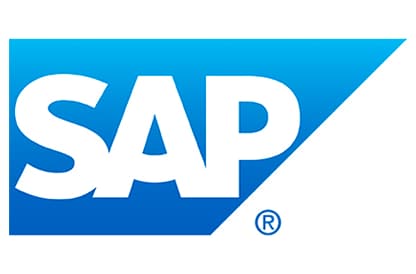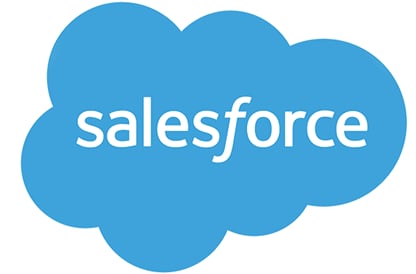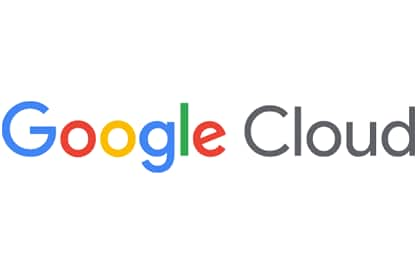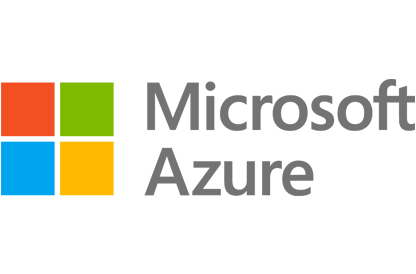Why OpenText
Why OpenText
Overview Why OpenText
OpenText brings decades of expertise to help you unlock data, connect people and processes, and fuel AI with trust
Manage and connect data
Unify data seamlessly across your enterprise to eliminate silos, improve collaboration, and reduce risks
AI-ready information
Get AI-ready and transform your data into structured, accessible, optimized information
Built-in security and compliance
Meet regulatory and compliance requirements and protect your information throughout its lifecycle
Empowering people
Overview Empowering people
OpenText helps people manage content, automate work, use AI, and collaborate to boost productivity
Customers
See how thousands of companies around the world are succeeding with innovative solutions from OpenText
Employees
Our people are our greatest asset; they are the life of the OpenText brand and values
Corporate Responsibility
Learn how we aspire to advance societal goals and accelerate positive change
Partners
Find a highly skilled OpenText partner with the right solution to enable digital transformation
How we compare
Content Management
Service Management
Deploy anywhere
Overview Deployment options
Explore scalable and flexible deployment options for global organizations of any size
Sovereign cloud
Local control. Global scale. Trusted AI
Private cloud
Unlock the value of the cloud while maintaining control and compliance
On-premises
Maintain full control of your data on your own infrastructure
Public cloud
Protect, scale, and use business information in your cloud of choice
AI leadership
Overview Aviator AI
See information in new ways
OpenText™ Aviator™ AI
AI that understands your business, your data, and your goals
OpenText™ MyAviator
Say hello to faster decisions. Your secure personal AI assistant is ready to get to work
OpenText™ Business Network Aviator™
Gain better insights with generative AI for supply chains
OpenText™ Content Aviator™
Power work with AI content management and an intelligent AI content assistant
OpenText™ Cybersecurity Aviator™
Improve your security posture with AI cybersecurity and agile threat detection
OpenText™ DevOps Aviator™
Enable faster app delivery, development, and automated software testing
OpenText™ Experience Aviator™
Elevate customer communications and experiences for customer success
OpenText™ Fax Aviator™
Turn every fax into instant action with AI
OpenText™ Service Management Aviator™
Empower users, service agents, and IT staff to find the answers they need
Aviator AI
Overview Aviator AI
See information in new ways
OpenText™ Aviator™ AI
AI that understands your business, your data, and your goals
OpenText™ MyAviator
Say hello to faster decisions. Your secure personal AI assistant is ready to get to work
OpenText™ Business Network Aviator™
Gain better insights with generative AI for supply chains
OpenText™ Content Aviator™
Power work with AI content management and an intelligent AI content assistant
OpenText™ Cybersecurity Aviator™
Improve your security posture with AI cybersecurity and agile threat detection
OpenText™ DevOps Aviator™
Enable faster app delivery, development, and automated software testing
OpenText™ Experience Aviator™
Elevate customer communications and experiences for customer success
OpenText™ Fax Aviator™
Turn every fax into instant action with AI
OpenText™ Service Management Aviator™
Empower users, service agents, and IT staff to find the answers they need
Analytics
Overview Analytics
Predict, act, and win with real-time analytics on a smarter data platform
Business Network
Overview Business Network
Connect once, reach anything with a secure B2B integration platform
Content
Overview Content
Reimagine knowledge with AI-ready content management solutions
OpenText™ Content Aviator™(AI)
Supercharge intelligent workspaces with AI to modernize work
Cybersecurity
Overview Cybersecurity
Integrated cybersecurity solutions for enterprise protection
OpenText Cybersecurity for SMBs & MSPs
Purpose built data protection and security solutions
OpenText™ Cybersecurity Aviator™(AI)
Reinvent threat hunting to improve security posture with the power of agile AI
DevOps
Overview DevOps
Ship better software—faster—with AI-driven DevOps automation, testing, and quality
Experience
Overview Experience
Reimagine conversations with unforgettable customer experiences
OpenText™ Experience Aviator™(AI)
Transform customer communications with private generative AI
OpenText™ Fax Aviator™(AI)
Turn faxes into workflow-ready data with AI
Legal Tech
Overview Legal Tech
Make smarter decisions with AI-powered legal software and services
OpenText™ eDiscovery
Accelerate eDiscovery with AI-driven speed and precision
OpenText™ Investigation
Optimize strategy with early case assessment and investigation tools
OpenText™ Core Insight
Get smarter eDiscovery with advanced TAR and automated document review
OpenText™ Core Legal Hold
Automate legal holds to eliminate risky and time-consuming processes
OpenText™ Legal Knowledge Management
Unlock knowledge and legal insights across content silos
Observability and Service Management
Overview Observability and Service Management
Get the clarity needed to cut the cost and complexity of IT operations
OpenText™ Service Management Aviator™(AI)
Redefine Tier 1 business support functions with self-service capabilities from private generative AI
APIs
Overview APIs
Build custom applications using proven OpenText Information Management technology
OpenText™ API Services
Build it your way with OpenText Cloud APIs that create the real-time information flows that enable custom applications and workflows
Device and Data Protection
Overview Device and Data Protection
Protect what matters, recover when it counts
Unified Endpoint Management Tools
- OpenText™ Endpoint Management
- OpenText™ ZENworks Suite
- OpenText™ ZENworks Service Desk
- OpenText™ ZENworks Configuration Management
- OpenText™ ZENworks Endpoint Security Management
- OpenText™ ZENworks Full Disk Encryption
- OpenText™ ZENworks Endpoint Software Patch Management
- OpenText™ ZENworks Asset Management
Solutions
Trusted Data & AI
Overview Trusted Data & AI
Secure information management meets trusted AI
OpenText AI Data Platform
A unified data framework to elevate data and AI trust
OpenText™ Aviator™ Studio
A place where you can build, deploy, and iterate on agents in your data's language
OpenText Discovery
A set of tools to help ingest data and automate metadata tagging to fuel AI
OpenText Data Compliance
A suite of services and APIs that make governance proactive and persistent
OpenText Aviator AI Services
Professional services experts who help you on your AI journey
Information Reimagined
Overview Information Reimagined
Get greater visibility and sharper insights from AI-driven information management. Ready to see how?
Knowledge reimagined
Transform daily work with enterprise content management powered by AI
Service Management reimagined
Cut the cost and complexity of IT service management, AIOps, and observability
Connections reimagined
AI-powered B2B integration for supply chain success
Conversations reimagined
Drive value, growth, and loyalty with connected customer experiences
Engineering reimagined
Agile development and software delivery? It only seems impossible
Security reimagined
Cybersecurity for the Enterprise
Decisions reimagined
Unlock insights with AI data analytics
Artificial Intelligence
Overview Aviator AI
See information in new ways
OpenText™ Aviator™ AI
AI that understands your business, your data, and your goals
OpenText™ MyAviator
Say hello to faster decisions. Your secure personal AI assistant is ready to get to work
OpenText™ Business Network Aviator™
Gain better insights with generative AI for supply chains
OpenText™ Content Aviator™
Power work with AI content management and an intelligent AI content assistant
OpenText™ Cybersecurity Aviator™
Improve your security posture with AI cybersecurity and agile threat detection
OpenText™ DevOps Aviator™
Enable faster app delivery, development, and automated software testing
OpenText™ Experience Aviator™
Elevate customer communications and experiences for customer success
OpenText™ Fax Aviator™
Turn every fax into instant action with AI
OpenText™ Service Management Aviator™
Empower users, service agents, and IT staff to find the answers they need
Industry
Overview Industry solutions
Improve efficiency, security, and customer satisfaction with OpenText
Energy and resources
Transform energy and resources operations with cloud, cybersecurity, and AI
Financial services
Boost customer experience, compliance, and efficiency with AI
Government
Reimagine your mission with government-secure information management
Healthcare and life sciences
Improve care delivery and patient engagement with AI-powered solutions
Legal
Modernize legal teams with automated, AI-powered legal tech solutions
Manufacturing
Modernize manufacturing operations and logistics to reduce costs and ensure compliance
Retail and consumer goods
Enhance consumer engagement with omnichannel retail solutions and AI
Enterprise Application
Overview Solutions for Enterprise Applications
Run processes faster and with less risk
Services
Services
Overview Services
Achieve digital transformation with guidance from certified experts
Professional Services
Modernize your information management with certified experts
Customer Success Services
Meet business goals with expert guidance, managed services, and more
Support Services
Turn support into your strategic advantage
Managed Services
Free up your internal teams with expert IT service management
Learning Services
Discover training options to help users of all skill levels effectively adopt and use OpenText products
Professional Services
Overview Professional Services
Modernize your information management with certified experts
Customer Success Services
Overview Customer Success Services
Meet business goals with expert guidance, managed services, and more
Support Services
Overview Support Services
Turn support into your strategic advantage
Managed Services
Overview Managed Services
Free up your internal teams with expert IT service management
Learning Services
Overview Learning Services
Discover training options to help users of all skill levels effectively adopt and use OpenText products
Partners
Find a Partner
Overview Find a partner
Find a highly skilled OpenText partner with the right solution to enable digital transformation
Cloud Partners
Overview Cloud Partners
OpenText partners with leading cloud infrastructure providers to offer the flexibility to run OpenText solutions anywhere
Enterprise Application Partners
Overview Enterprise Application Partners
OpenText partners with top enterprise app providers to unlock unstructured content for better business insights
Partner Solutions
Overview Partner Solutions
Discover flexible and innovative offerings designed to add value to OpenText solutions
Resources for Partners
Overview Resources for Partners
Discover the resources available to support and grow Partner capabilities
Support
Overview Customer Support
Get expert product and service support to accelerate issue resolution and keep business flows running efficiently
Resources
Overview Resources
Explore detailed services and consulting presentations, briefs, documentation and other resources
Choose your region:
Europe, Middle East and Africa
Asia–Pacific
 UCB
UCB
OpenText™ Application Quality Management supports non-IT equipment verification for end-to-end traceability in new biotechnology manufacturing plant

Products and services
Solution group
Outcomes
- Central source of truth for full visibility and traceability
- Data consistency and automated reporting supports audit requirements
- Increased testing robustness for improved overall quality
- Standardization and reuse deliver operational efficiency and compliance gains
Challenge
Adopt a proven IT software testing solution to support non-IT equipment verification for a new biotechnology manufacturing plant.
Details
OpenText Application Quality Management extends beyond supporting software testing
When the organization introduced SAP into the business, it realized it needed a robust software testing solution to support the global roll-out and ongoing maintenance. After a thorough market evaluation, OpenText™ Application Quality Management was chosen. This governs test management activities to improve quality and meet business and compliance goals by implementing rigorous processes. Emmanuel Devos, IT Lead Testing Centre of Excellence at UCB, picks up the story: “Our SAP roll-out was very extensive, covering finance, manufacturing, supply chain, HR, etc., and took quite a few years. OpenText Application Quality Management grew with the project and was used to run standard testing for all our sites. Each country has its own legal entity, and the SAP implementation needs to conform to both local and central standards, so OpenText Application Quality Management gave us the flexibility and visibility to achieve this fully.”
We will have substantial efficiency and compliance gains through end-to-end traceability with OpenText Application Quality Management which means no shortcuts can be made when it comes to the thorough testing of our manufacturing equipment.
Automating equipment verification processes in non-IT environment
The new facility supports the company’s growth and prepares it for the launch and long-term supply of future medicines currently under worldwide market authorization reviews. It represents an investment of several hundred million euros over the coming years and is expected to be operational in 2024. The biotechnology plant will be the largest and most modern at UCB.
During this time, a mindset transformation was taking place within the company. Mathieu Marrot, Quality Lead for the new plant at UCB, noticed the advances in IT and came to Mr. Devos with an interesting question: “I wanted to understand if OpenText Application Quality Management could be deployed in a non-IT environment. The new facility will be supported by hundreds of equipment provided by dozens of different vendors. The equipment must be tested at the vendor sites and at our UCB site. This question came from a lesson learnt from our colleagues in Switzerland who managed a similar project a few years ago. The two main outcomes were that the absence of standardization, due to the involvement of different vendors, led to difficulties during project execution, and that paper-based protocols required a strong and complex archiving process. We figured there must be a better way to document verification activities electronically, so we were interested in the experience IT had built with OpenText Application Quality Management.”
Central source of truth with full data integrity, leveraging e-signatures
With up to 100 people involved in the project, including many contractors and vendors, this is a mission-critical project for UCB. “We had some convincing to do internally,” says Mr. Devos. “We knew OpenText Application Quality Management could really streamline and enhance the processes by automating equipment verification but having worked with paper-based processes for so many years, this required a real culture change. It helps that we work in a highly regulated industry and have a recognized need to track and trace everything, with full data integrity. We could showcase that OpenText Application Quality Management could increase the efficiency in the delivery of all audit-related deliverables and facilitate a digital approval process with its electronic signature capability. A central source of the truth gives us visibility and easy access for all stakeholders. We were delighted to work with our business partners in making this happen.” The native OpenText Application Quality Management e-signature solution also ensures repeatable validation and testing processes and optimizes reviews and approvals across the UCB organization with full traceability.
In close collaboration with OpenText R&D and a local implementation partner, the team assessed the current paper-based processes that are required to comply with regulations or quality standards. They then mapped the process entities to OpenText Application Quality Management modules to create mockups and define the level of configurations to meet the full requirements. The final designs were tested against real data scenarios and validated. A lot of time was spent on standardizing processes so that they can easily be reused. To achieve an end-to-end view from requirements definition to testing execution, the project team also implemented the OpenText Application Quality Management Requirements module, which hadn’t been extensively used by IT previously.
Previously, each vendor would have their own template and tests which made it complicated for the UCB project team to review. For this project, non-equipment-specific tests (e.g., slope check, material certificate check) were written by the UCB team in OpenText Application Quality Management and imposed on all vendors to standardize the content. Tests which were specific to an equipment were written by vendors or UCB in an Excel file and imported in OpenText Application Quality Management by using a standardized template. “The flexibility within OpenText Application Quality Management is one of the main benefits for us,” comments Mr. Devos. “Our data access has to be strictly segregated by role or by vendor. With so many people accessing the system, it is fantastic that we can open it up with OpenText Application Quality Management role-based access control without violating anyone’s privacy or access rights and while respecting equipment’s intellectual property.”
Real-time test status and meaningful management reporting
With over 14,000 entries logged in the OpenText Application Quality Management Requirements module and the estimate of at least 50,000 test executions over the course of the facility’s completion, the increased visibility is already proving very useful, as Mr. Marrot comments: “With such a big project and testing activities happening all around Europe, at vendors’ sites and at our UCB site, it can be difficult to have full status visibility. With OpenText Application Quality Management, I can simply log into the system and view the test status in real-time. It gives me relevant information and by customizing KPIs and generic reports, I can generate useful report data for senior project management.”
Portable test execution on-site is done with tablets which connect to the UCB network and feed their test results directly into OpenText Application Quality Management. The end-to-end traceability is a real operational benefit to UCB. At any point in time the team can see how requirements and tests are linked. OpenText Application Quality Management automatically populates a traceability matrix through this linking. Project managers can check how many tests or defects are in progress, whether they are major or minor, and what their status is. Clear reporting against established KPIs gives an increased level of reliability about the project’s progress.
A full audit trail keeps track of any field changes and logs information about who makes changes and when, comparing old and new values. The e-signature feature within OpenText Application Quality Management is integrated in the approval workflow and manages a digital approval process. OpenText Application Quality Management also tracks interdependencies between different roles and links versioning to the different stages of the approval workflow. “Electronic end-to-end records will be a great help. Now, we can just log onto OpenText Application Quality Management and see all the test evidence on the screen. It will be a change for our regulators too, but I believe a very welcome one,” says Mr. Marrot.
With OpenText Application Quality Management, I can simply log into the system and view the test status in real-time. It gives me relevant information and by customizing KPIs and generic reports, I can generate useful report data for senior project management.
Achieve more in the same timeframe: improving quality and efficiency
“This is an innovative approach in the manufacturing and pharmaceutical market for Belgium, so we’re educating our stakeholders as we go,” says Mr. Devos. “Everything we do now will help us improve our equipment lifecycle management and ensure that new projects won’t need to reinvent the wheel but can benefit from our experience. We will have substantial efficiency and compliance gains through end-to-end traceability with OpenText Application Quality Management which means no shortcuts can be made when it comes to the thorough testing of our equipment.”
He concludes: “OpenText Application Quality Management has enabled us to do more in the same timeframe, increasing our testing robustness, traceability, and efficiency. To reach the same quality levels with our previous manual processes would take a huge number of resources. Instead, we have better quality and data integrity which increases our confidence and reduces our business risk. We enjoy the partnership we have built with OpenText. They listened carefully to our requirements and worked closely with us to meet our needs on this critical project.”
About UCB

UCB is a global biopharmaceutical company, focusing on neurology and immunology. It aims to transform the lives of people living with severe diseases. With more than 7,600 people around the globe, total revenue in 2020 was €5.3 billion.





